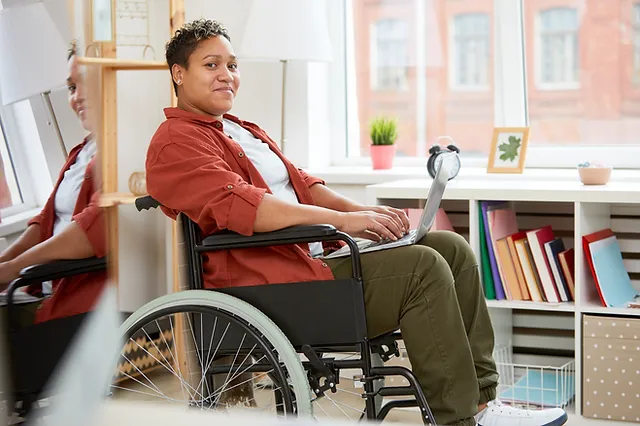Home care for people with disabilities is more than just a convenience. It provides essential support that allows individuals to stay in their familiar environment. This setting offers a sense of security and comfort. Remaining at home often leads to better mental health and overall well-being.
But how exactly does it empower independence and enhance quality of life? This article delves into the various advantages of disability home care. It fosters autonomy, supports health, and creates a comfortable living environment for individuals with disabilities. By understanding these benefits, we can better appreciate the importance of home care services.
The Comfort of Familiar Surroundings
It allows individuals to stay in their familiar environment, which provides a sense of security and comfort. People can stay close to their loved ones and maintain their routines. The comfort of home often leads to better mental health and overall well-being.
Personalized Care Plans
They are tailored to meet individual needs. These plans take into account personal preferences and health requirements. This ensures that the support provided is effective and respectful. It empowers individuals by giving them control over their daily lives.
Enhanced Quality of Life
Home care services notably enhance the quality of life. These services cater to both physical and emotional needs, help manage health conditions, and improve daily living.
Health Management
Managing health conditions at home is often more comfortable and effective. It includes:
- Medication management: Ensuring timely and correct medication intake.
- Regular health monitoring: Keeping track of vital signs and symptoms.
- Nutritional support: Planning and preparing balanced meals.
These services donate to better health outcomes and reduced hospital visits.
Emotional Support
Emotional well-being is crucial for overall health. Providers offer companionship and emotional support. This interaction reduces feelings of loneliness and isolation. Regular social engagement keeps the mind active and positive.
Promoting Autonomy
It empowers individuals by promoting autonomy. People with disabilities can make their own decisions about their care. This sense of control is vital for self-esteem and independence.
Daily Living Support
Support with daily living activities is a cornerstone of home care. This includes:
- Personal hygiene: Assistance with bathing, dressing, and grooming.
- Mobility support: Helping with movement around the house.
- Household tasks: Aid with cleaning, cooking, and laundry.
These supports enable individuals to manage their lives with greater ease.
Assistive Technology
The use of assistive technology is growing in in-home care. Devices like smart home systems, mobility aids, and communication tools enhance independence and make daily tasks easier and safer.
Flexible and Convenient
It offers flexibility and convenience. They can be adjusted to fit changing needs and schedules. This adaptability ensures continuous and appropriate support.
Customized Schedules
It can be customized to suit individual lifestyles. Whether part-time or full-time, care can be planned according to personal routines. This flexibility is crucial for maintaining normalcy and comfort.
Immediate Availability
They are often available on short notice. This immediate availability is beneficial during emergencies. It provides peace of mind to individuals and their families.
Building Strong Relationships
It fosters strong relationships between caregivers and clients. This bond is raised on trust and understanding. It enhances the quality of care provided.
Consistent Caregivers
Having consistent caregivers is a significant advantage. It ensures continuity and familiarity. Clients and caregivers can build a rapport, leading to better communication and care.
Family Involvement
It involves family members in the caregiving process, which provides additional support and reassurance. Families can participate in decisions and routines.
Encouraging Independence
Promoting independence is a key goal of home services. Independence boosts self-esteem and enhances the quality of life for individuals with disabilities.
Skills Training
Skills training programs teach individuals with disabilities how to perform daily tasks and develop new abilities. These programs include:
- Life skills: Cooking, cleaning, and personal finance management.
- Social skills: Communication, relationship building, and conflict resolution.
- Vocational skills: Job-specific training and career development.
Individuals gain confidence and autonomy by developing these skills, enabling them to navigate their lives with greater independence.
Cost-Effective Solution
It can be a cost-effective method compared to institutional assistance. It eliminates the requirement for expensive facility fees, and individuals pay only for the services they need.
Affordable Care Options
There are various affordable options available. These include:
- Part-time care: For individuals who need minimal assistance.
- Specialized services: Tailored to specific health conditions.
- Government programs: Financial assistance for eligible individuals.
Home care empowers individuals with disabilities by promoting independence and enhancing quality of life. It provides personalized assistance in a familiar environment, supports health management, and offers emotional and social benefits. The flexibility and convenience of it make it an ideal choice for many.
Strong relationships with caregivers and family involvement further enrich the experience. Additionally, disability home care can be a cost-effective solution, making essential support accessible to more people. Understanding and appreciating these advantages highlights the importance of home care in fostering independence and well-being for individuals with disabilities.






